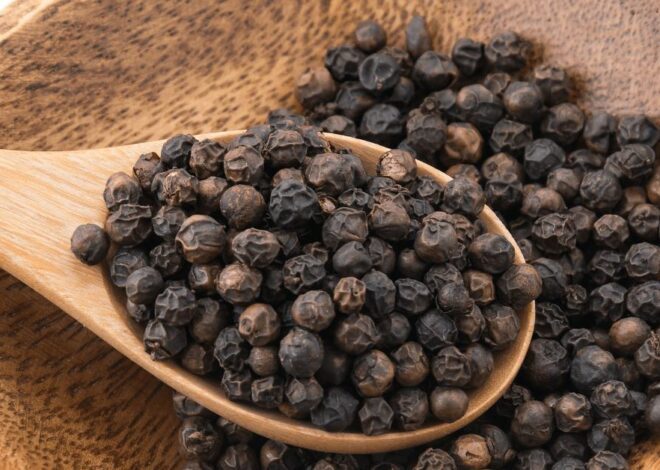
Lemon Zest Benefits: Why Lemon Zest Deserves a Spot in Your Daily Diet
If you have ever tossed away lemon peels after squeezing the juice, you are missing out on a nutritional goldmine. Lemon zest, the vibrant yellow outer layer of the lemon peel, is rich in flavor, antioxidants, and numerous health benefits. In this blog, we will explore what lemon zest is, why it is more nutritious than you think, and how to easily incorporate it into your daily meals. Whether you are looking to boost immunity or add a zesty twist to your cooking, this guide on lemon zest benefits will help you make the most of this underrated ingredient.
What Is Lemon Zest?
Lemon zest is the vibrant yellow outer skin of the lemon, carefully scraped off to avoid the bitter white pith beneath. It is packed with natural oils like limonene, which give it a bold, citrusy aroma and a concentrated flavor that’s far more intense than lemon juice alone.
This fragrant layer is where the magic happens. It holds the essence of the fruit, making it a favorite among chefs and home cooks alike. Zest adds a refreshing lift to both sweet and savory dishes without altering their acidity.
It is often used in baking, marinades, dressings, and even beverages to enhance taste and aroma. Rich in antioxidants and vitamin C, lemon zest also offers health benefits that go beyond flavor. Unlike juice, it contains fiber and phytonutrients that support digestion and immunity. Whether grated fresh or dried for later use, lemon zest is a simple way to elevate everyday meals with minimal effort.
Why Is Lemon Zest Nutritious?
Wondering what makes lemon zest so special? Well, it isn’t just a flavor enhancer; it is a nutritional powerhouse hiding in plain sight. This vibrant outer peel is loaded with compounds that support immunity, heart health, and even detoxification. Unlike lemon juice, zest offers a more concentrated dose of antioxidants, essential oils, and fiber, making it a smart and easy upgrade to your daily diet. Key Nutritional benefits include:
-
- Rich in Vitamin C, which helps boost immunity and supports collagen production for healthy skin and joints.
- Contains powerful antioxidants like limonene and hesperidin that help fight free radicals and reduce inflammation.
- Supports heart health by aiding in the regulation of blood pressure and cholesterol levels.
- Offers antibacterial properties that promote oral hygiene and help prevent gum infections.
- Aids natural detoxification by stimulating liver enzymes and enhancing bile production for better digestion.
Is Lemon Zest Healthier than Lemon Juice?
Yes, lemon zest often contains more concentrated nutrients than lemon juice. While juice is rich in vitamin C, zest offers additional flavonoids, essential oils, and fiber. It is not about replacing lemon juice, but enhancing your intake by using both.
How to Incorporate Lemon Zest into Your Daily Diet
Adding lemon zest to your meals is easier than you think. Here are some delicious ways to use it:
-
- Sprinkle on salads for a citrusy lift.
- Mix into yogurt or oatmeal for a refreshing twist.
- Add to baked goods like muffins, cakes, and cookies.
- Stir into marinades for chicken, fish, or tofu.
- Blend into smoothies for extra zing.
- Infuse olive oil or tea with zest for a subtle flavor.
Pro Tip:
Store extra zest in an airtight container in the freezer. It keeps well and stays fragrant.
How to Pick the Right Lemons for Zesting
Choosing the right lemon is key to getting high-quality zest. To get the best lemon zest, always choose lemons with firm, smooth, and brightly colored skin, as these are rich in essential oils that give zest its punch. Organic lemons are ideal since they are free from wax and pesticides, making the peel safer to consume. Avoid lemons with dull, wrinkled, or soft spots, as they may lack freshness and flavor. A quick sniff test can also help. Fresh lemons should smell intensely citrusy.
How to Make Lemon Zest at Home
Making lemon zest is a simple and quick process.
-
- Wash and dry the lemon.
- Use a microplane, zester, or fine grater to gently scrape the yellow skin.
- Avoid the white pith; it is bitter and can ruin the taste.
- Use immediately or store in the fridge (up to 1 week) or freezer (up to 3 months). You can also dry zest and grind it into powder for seasoning blends.
Conclusion: Why Lemon Zest Deserves a Spot in Your Kitchen
Lemon zest isn’t just a garnish; it is a powerhouse of flavor and nutrition. From boosting immunity to enhancing heart health, the benefits of lemon zest are too good to ignore. By choosing fresh lemons and using zest creatively, you can elevate your meals and support your wellness naturally.
Whether you are optimizing your diet or simply adding zest to your cooking, this citrus gem offers a flavorful way to stay healthy. So next time you reach for a lemon, don’t toss the peel, zest it!



